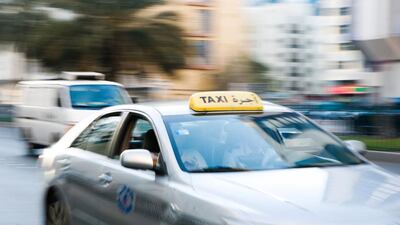I was drawn to your article Up to 150 cabbies a month fired over signals (August 28). Let me clarify that I am not against disciplining taxi drivers by way of fining them or probably withholding their driving licences if they repeatedly commit the same offence. But I personally feel that firing a driver or depriving him of his livelihood is a bit harsh. It is also not an economically sustainable solution for the authorities or the employers given the costs involved in training, arranging for visas and other recruitment costs.
Sometimes I feel that because of heavy traffic during rush hours, demanding customers and other reasons, taxi drivers generally tend to jump the signal. Yet, they cannot be excused, and I am against those who wilfully break the law.
But in smart cities like Abu Dhabi, Dubai and Sharjah why can’t the traffic authorities install countdown metres at every signal? They will certainly prevent drivers from jumping signals.
This system can help avert accidents and lead to better traffic management.
Sandeep Das, Abu Dhabi
It’s not always easy to plan for your retirement
Harvey Jones' article How much do UAE expats need to save for retirement? (August 30) was interesting and useful. However, I would like to add that while saving for your future you have to take inflation into account.
Today you might think that a saving of around $850,000 will see you through the rest of your life. But by the time you retire, the worth of that amount will be much lower, and the amount may not be sufficient for even half the period you had calculated.
In many countries there are good pension schemes. But in other countries where there is no such scheme or where they are less beneficial than keeping money in the bank, the best thing is to invest in immovable properties. Even then there is no escape from tension and that is a dreadful feeling. That’s why so many expats never want to return home.
Fahim Akhtar, Abu Dhabi
Give up smoking and save lives
With regard to your story Tobacco law has little impact on shisha business in Ajman (Sept 2), smoking is dangerous not just for the smokers but those who breathe in the smoke.
You wouldn’t leave your family in a room with a smouldering chair, so why would anyone allow their family, their loved ones, to be in a cafe with lots of smokers? It causes so many illnesses. There is no point in opening a window, because smoke is pervasive and insidious. YouTube probably has the evidence somewhere on it, showing how smoke pervades everything. Please give up smoking.
Jen Bishop, Abu Dhabi
Why is falafel so expensive?
They filled a gap in the market (Just Falafel chief executive Fadi Malas resigns, August 20). I remember a few years ago when they just opened an outlet in Al Barsha, I predicted they would really do well. And they have done. They have grown really fast.
Sajjad H Rizvi, Dubai
Could Mohammed Bitar, the founder and managing director of Just Falafel, explain why felafel, one of the cheapest foods on Earth, is more expensive than McDonald’s or Burger King items? Why should anyone support expensive food prepared from cheap ingredients?
Nawaf Abu Ghazaleh, Abu Dhabi
Know the truth about insurance
The story about the uninsured Indian man is sad (Abu Dhabi hospital bill mounts for uninsured Indian man, September 1). But have you asked how much his previous insurance would have paid on the total Dh600,000 bill? I always wondered if the "basic coverage" that has a Dh50,000 limit would ever be revealed as a kind of "false insurance".
This is true in the US as well, because the United States doesn’t have “universal health care” – they pay fee-for-service – and most people are under the illusion that they are protected. But when a disaster strikes, the truth is revealed that the insurance has a limit. And the insurance companies maintain their 10 per cent cut of the health care pie. They keep raising their premiums to maintain it and doing all they can to deny or disallow payments to providers.
However, in Taiwan, South Korea and even France, people are always covered, especially between jobs, and the cost of administering the payment process fairly is less than five per cent. In the US, the cost of overheads is more than 30 per cent now.
George Swan, Abu Dhabi

